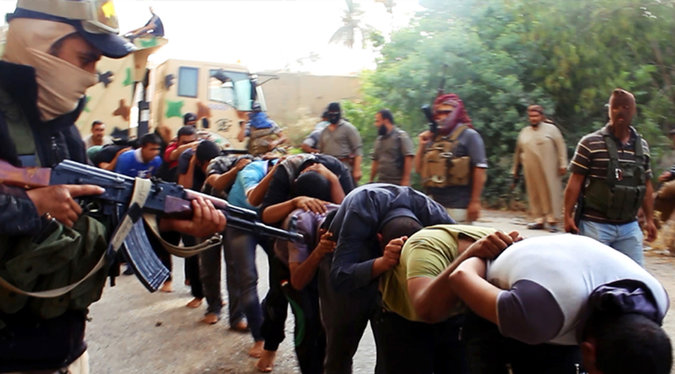
ISIS: Questions from neophytes
HAVANA — To those of us who are not specialists in the problems of the Middle East, the appearance of the so-called Islamic State of Iraq and Syria (ISIS) was a real surprise.
It is said that it is a force risen from the inner conflicts within the Islamic religion that, in addition to local ingredients, has been fed by the incorporation of fanatics and mercenaries from all over the world with a fundamentalist mission to impose their faith upon the rest of the people.
By itself, this is a questionable religious interpretation, as it evades specifying the worldly causes that have exacerbated those conflicts. But, even so, questions arise that are basic to understand this phenomenon.
How was it possible that, in the most watched and besieged region of the world, rose a self-appointed terrorist state with an army capable of controlling much of Syria and advancing almost to the capital of Iraq, precisely where the United States practically wiped out the country and occupied it for years under the pretext of terminating that threat?
According to U.S. Defense Secretary Chuck Hagel, the ISIS constitutes an unparalleled danger because of the military infrastructure it possesses and the financing its forces receive. Which leads us to another question: How did this army of fanatics who murder populations en masse, bury alive those who do not profess their faith and behead a U.S. journalist in front of cameras emerge?
As in the case of Al Qaeda, some sources attribute its origin to the subversive plans by the U.S. and its European and Arab allies against Syria. Former U.S. Secretary of State Hillary Clinton confirmed this news, although to her the problem was not to promote this monster but to support it insufficiently, which allowed groups that were not controlled by the U.S. to become preponderant in the movement.
However, some specialists contradict this theory of possible control and thank God that the support was not as great as proposed at the time by the likely Democratic presidential candidate.
Let us accept that they erred and that things didn’t work out as they expected, a recurrent phenomenon in the United States’ bellicose policy. Let us wonder how ISIS finances itself at present.
It is said that financing comes through the sale of crude oil obtained from the occupied areas of Syria, which generates another question: Who’s in charge of exploiting and commercializing those oil fields, and who buys that oil in a world ruled by the premise that a state that supports terrorists is a terrorist state?
 Some believe that the buyer is Israel and the sellers are the Arab states of the Gulf, especially Saudi Arabia, using a channel through Turkey. All of those countries are allies of the U.S., whose transnational companies are at least suspect of participating in the juicy business.
Some believe that the buyer is Israel and the sellers are the Arab states of the Gulf, especially Saudi Arabia, using a channel through Turkey. All of those countries are allies of the U.S., whose transnational companies are at least suspect of participating in the juicy business.
True or not, it is laughable for Hagel not to know the exact answer and for U.S. policy to consist only of using intelligent bombs to blow up one or two trucks allegedly loaded with Islamic soldiers — as shown on television — without acting against the purported sources of support, as the U.S. has done unsparingly in other cases, rightly or wrongly.
The major communications media, who know the answer, don’t help us to learn the truth but, despite our ignorance, I don’t think that these questions are outlandish.
The makers of U.S. policy themselves must be wondering how they can solve the mess they have created. It seems that now they’ll have to find some sort of accommodation with Iran and Syria to deal with the ISIS.
They don’t know how to leave Afghanistan without the Talibans (foes in a previous war) seizing power. In Libya, U.S. diplomats have had to be evacuated because of the fratricidal wars created by Qaddafi’s overthrow. Israel massacres the Palestinians to the detriment of U.S. authority.
And the Gulf monarchies — the presumed models of the “democracy” the U.S. wants for the Middle East — are also starting wars on their own, independently from the U.S. government, which claims not to be informed.
The ill-fated “war on terrorism” has cost hundreds of thousands of lives in the Middle East — a thorough count might reach millions — and has not served to stabilize the region for the United States’ own interests.
In the face of this reality, another pertinent question is who benefits from this situation? As I said in a recent article, “Because the market for arms is war, it isn’t even necessary to win a war in order to satisfy the interests of the arms industry.”

